Dodge Journey: Spring(s), valve
Description
The valve springs are made from high strength, chrome-silicon steel. The springs are common for intake and exhaust applications. The valve spring seat is integral with the valve stem seal, which incorporates a garter spring to maintain consistent lubrication control to the valve stem.
Removal
IN VEHICLE
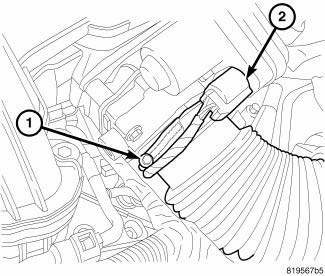
Fig. 141: Air Cleaner Housing & Inlet Hose
1. Perform fuel system pressure release procedure before attempting any repairs.
2. Disconnect negative cable from remote jumper terminal.
3. Remove air cleaner housing and inlet hose (1).
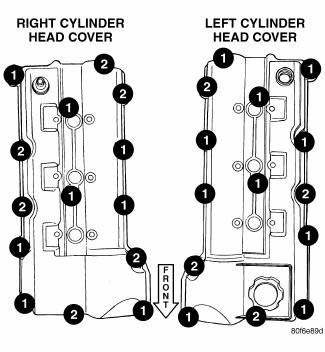
Fig. 142: Cylinder Head Cover Fasteners
- - DOUBLE ENDED STUDS
- - BOLTS
4. Remove upper intake manifold.
5. Remove cylinder head covers.
6. Remove crankshaft vibration damper.
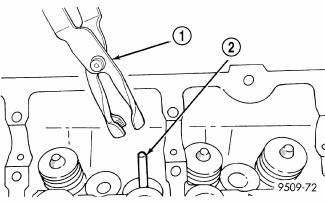
Fig. 143: Valve Stem Seal-Removal/Installation
- - VALVE SEAL TOOL
- - VALVE STEM
7. Remove camshafts and rocker arms.
8. With air hose attached to spark plug adapter installed in the cylinder being serviced, apply 620.5-689 kPa (90-100 psi) air pressure. This is to hold valves in place while servicing components.
9. Using Special Tool MD 998772A with adapter 6779, compress valve spring and remove valve locks, retainer, and valve spring.
10. Remove valve stem seal.
OFF VEHICLE
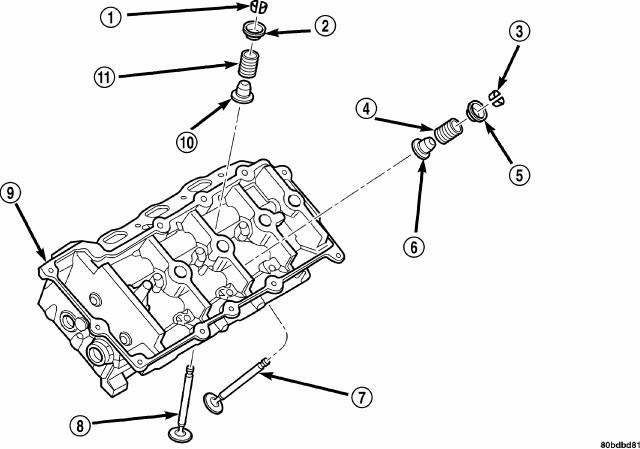
Fig. 144: Cylinder Head, Valves & Springs
- - VALVE KEEPER
- - SPRING RETAINER
- - VALVE KEEPER
- - VALVE SPRING-EXHAUST
- - SPRING RETAINER
- - VALVE STEM SEAL
- - VALVE-EXHAUST
- - VALVE-INTAKE
- - CYLINDER HEAD
- - VALVE STEM SEAL
- - VALVE SPRING-INTAKE
1. With cylinder head removed, compress valve springs using a Special Tool C-3422-D, Valve Spring Compressor.
2. Remove valve retaining locks, valve spring retainers, valve springs and valve spring seat/stem seal assembly.
Inspection
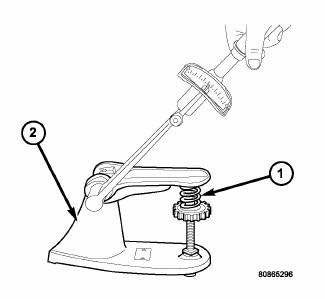
Fig. 145: TESTING VALVE SPRING
- - SPECIAL TOOL C-647
Whenever valves have been removed for inspection, reconditioning or replacement, valve springs should be tested. As an example; the compression length of a spring to be tested is 38.00 mm (1.496 in.). Turn the table of Tool C-647 until surface is in line with the 38.00 mm (1.496 in.) mark on the threaded stud and the zero mark on the front. Place spring over stud on the table and lift compressing lever to set tone device. Pull on torque wrench until ping is heard. Take reading on torque wrench at this instant. Multiply this reading by two. This will give the spring load at test length. Fractional measurements are indicated on the table for finer adjustments.
Refer to Engine - Specifications to obtain specified height and allowable tensions. Replace any springs that do not meet specifications.
Installation
IN VEHICLE
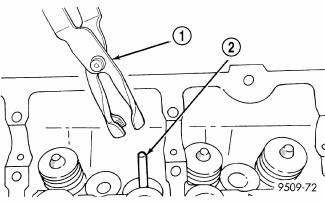
Fig. 146: Valve Stem Seal-Removal/Installation
- - VALVE SEAL TOOL
- - VALVE STEM
1. The valve stem seal/valve spring seat should be pushed firmly and squarely over the valve guide using the valve stem as guide. Do Not Force seal against top of guide. When installing the valve retainer locks, compress the spring only enough to install locks
2. Follow the same procedure on the remaining cylinders using the firing sequence 1-2-3-4-5-6. Make sure piston is at TDC on the cylinder that the valve spring is to be removed.
3. Remove spark plug adapter tool and Special Tool MD 998772A.
4. Install rocker arm(s).
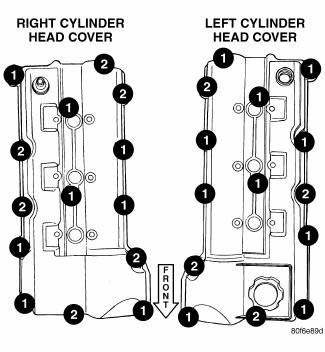
Fig. 147: Cylinder Head Cover Fasteners
- - DOUBLE ENDED STUDS
- - BOLTS
5. Install camshafts.
6. Install cylinder head covers.
7. Install upper intake manifold.
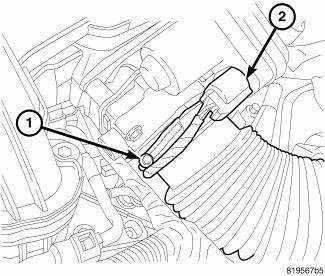
Fig. 148: Air Cleaner Housing & Inlet Hose
8. Install air cleaner housing and inlet hose (1).
9. Connect negative cable.
OFF VEHICLE
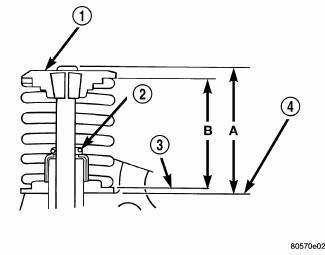
Fig. 149: Valve Tip Height & Valve Spring Installed Height
- - SPRING RETAINER
- - GARTER SPRING
- - VALVE SPRING SEAT TOP
- - CYLINDER HEAD SURFACE
1. If removed, install the valve(s).
2. If valves or seats have been re-ground, check valve tip height (A). If valve tip height for intake valve is greater than 47.59 mm (1.8737 in.) or 49.14 mm (1.9347 in.) for exhaust valve, grind valve tip until within specifications. Make sure measurement is taken from cylinder head surface to the top of valve stem.
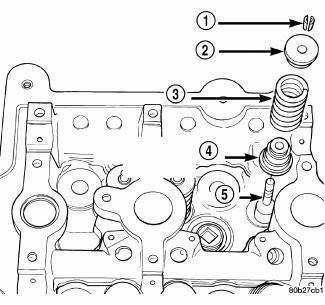
Fig. 150: Valve Seal & Spring
- - VALVE RETAINING LOCKS
- - VALVE SPRING RETAINER
- - VALVE SPRING
- - VALVE SEAL AND VALVE SPRING SEAT ASSEMBLY
- - VALVE
3. Install valve seal/spring seat assembly over valve guides on all valve stems. Ensure that the garter spring is intact around the top of the rubber seal. Install valve springs, valve retainers.
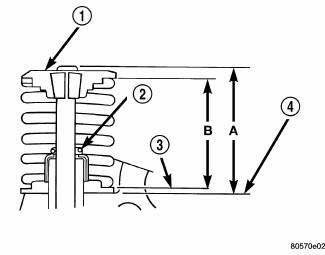
Fig. 151: Valve Tip Height & Valve Spring Installed Height
- - SPRING RETAINER
- - GARTER SPRING
- - VALVE SPRING SEAT TOP
- - CYLINDER HEAD SURFACE
4. Compress valve springs with a valve spring compressor install locks and release tool. If valves and/or seats are re-ground, measure the installed height of springs (B) , make sure measurements are taken from top of spring seat to the bottom surface of spring retainer. If height is greater than 38.75 mm (1.5256 in.), install a 0.762 mm (0.030 in.) spacer in head counterbore under the valve spring seat to bring spring height back within specification.
 Seal(s), valve guide
Seal(s), valve guide
REMOVAL
Fig. 139: Valve Stem Seal-Removal/Installation
- VALVE SEAL TOOL
- VALVE STEM
1. Remove valve spring.
2. Remove valve stem seal by using a valve seal tool.
INSTALLATION
Fig. ...
 Valves, intake and exhaust
Valves, intake and exhaust
Description
The valves are made of heat resistant steel, and have chrome plated stems to
prevent scuffing. The four valves
per cylinder (two intake and two exhaust) are actuated by roller rocker a ...
See also:
Preliminary checks
ENGINE COOLING SYSTEM OVERHEATING
Establish what driving conditions caused the complaint. Abnormal loads on the
cooling system such as the
following may be the cause:
Prolonged idle
Very hig ...
Removal
1. Raise and support the vehicle.
NOTE: Perform 2 through 5 on each side of the vehicle to complete pad
set
removal.
Fig. 117: TIRE AND WHEEL MOUNTING
2. Remove the wheel mounting nuts ...
Body, air cleaner
REMOVAL
1. Disconnect negative battery cable.
Fig. 87: Inlet Air Temperature Sensor Electrical Connector
2. Disconnect inlet air temperature sensor electrical connector (3).
3. Disconnect fres ...
